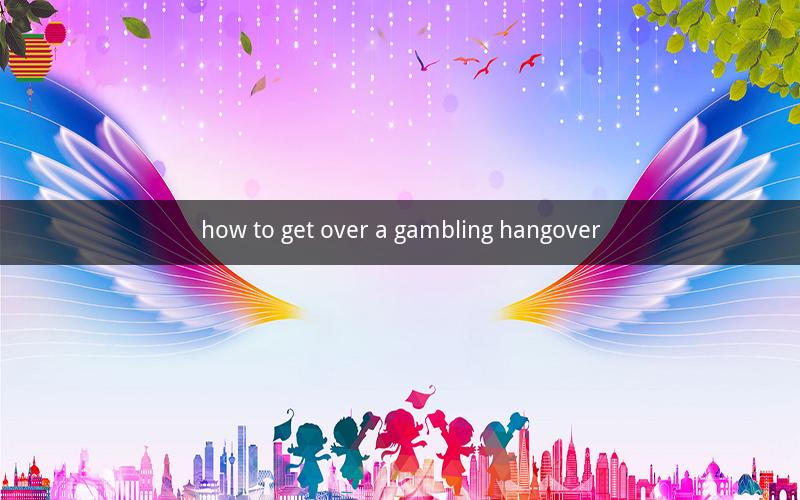
How to Get Over a Gambling Hangover
Table of Contents
1. Understanding the Concept of a Gambling Hangover
2. Identifying the Symptoms
3. Recognizing the Triggers
4. The Importance of Self-Reflection
5. Seeking Support from Friends and Family
6. Professional Help: Therapy and Counseling
7. Establishing a Support System
8. Developing Healthy Coping Mechanisms
9. Setting Boundaries and Limits
10. Embracing a Sober Lifestyle
1. Understanding the Concept of a Gambling Hangover
A gambling hangover, much like a hangover from alcohol, is a term used to describe the negative emotional and psychological effects that can follow a period of excessive gambling. It is characterized by feelings of regret, guilt, and a strong urge to return to gambling. Understanding this concept is the first step towards overcoming it.
2. Identifying the Symptoms
The symptoms of a gambling hangover can vary from person to person, but common signs include:
- Feelings of depression or sadness
- Increased irritability or mood swings
- Difficulty concentrating
- Insomnia or disrupted sleep patterns
- Increased anxiety or stress
- Financial strain or debt
- Relationship problems
3. Recognizing the Triggers
Identifying the triggers that lead to a gambling hangover is crucial. These can include:
- Emotional stress or turmoil
- Financial difficulties
- Social isolation
- Boredom or a lack of hobbies
- The presence of gambling opportunities
4. The Importance of Self-Reflection
Self-reflection is a powerful tool in overcoming a gambling hangover. It involves examining one's behavior, understanding the underlying causes, and acknowledging the consequences. This process can help individuals gain insight into their gambling habits and develop strategies for change.
5. Seeking Support from Friends and Family
Support from loved ones can be invaluable in overcoming a gambling hangover. Friends and family can offer emotional support, encouragement, and practical advice. Sharing your struggles with them can also help reduce feelings of isolation and shame.
6. Professional Help: Therapy and Counseling
Professional help, such as therapy or counseling, can provide individuals with the tools and strategies needed to overcome a gambling hangover. Therapists can help identify the root causes of gambling addiction, develop coping mechanisms, and provide guidance on how to maintain a sober lifestyle.
7. Establishing a Support System
Joining a support group, such as Gamblers Anonymous, can provide individuals with a network of peers who share similar experiences. These groups can offer a sense of community, understanding, and support, which can be crucial in overcoming a gambling hangover.
8. Developing Healthy Coping Mechanisms
Developing healthy coping mechanisms is essential in overcoming a gambling hangover. These can include:
- Engaging in physical activities, such as exercise or yoga
- Pursuing hobbies or interests
- Practicing mindfulness and meditation
- Learning new skills or taking up a new hobby
9. Setting Boundaries and Limits
Setting clear boundaries and limits is crucial in preventing future gambling hangovers. This can involve:
- Setting a budget for gambling activities
- Limiting the time spent on gambling
- Avoiding gambling venues or online platforms
- Notifying friends and family about your limits
10. Embracing a Sober Lifestyle
Embracing a sober lifestyle is the ultimate goal in overcoming a gambling hangover. This involves:
- Focusing on personal growth and well-being
- Building a fulfilling life outside of gambling
- Celebrating successes and milestones
- Remaining committed to a life of sobriety
Frequently Asked Questions
1. What is a gambling hangover?
A gambling hangover is the negative emotional and psychological effects that can follow a period of excessive gambling.
2. How can I identify the symptoms of a gambling hangover?
Symptoms include feelings of depression, irritability, difficulty concentrating, and financial strain.
3. What are common triggers for a gambling hangover?
Triggers can include emotional stress, financial difficulties, and social isolation.
4. Why is self-reflection important in overcoming a gambling hangover?
Self-reflection helps individuals gain insight into their gambling habits and develop strategies for change.
5. How can friends and family support someone with a gambling hangover?
They can offer emotional support, encouragement, and practical advice.
6. What types of professional help are available for overcoming a gambling hangover?
Therapy and counseling can provide individuals with the tools and strategies needed to overcome a gambling hangover.
7. How can I develop healthy coping mechanisms?
Engaging in physical activities, pursuing hobbies, and practicing mindfulness can help.
8. What are some ways to set boundaries and limits?
Setting a budget, limiting time spent on gambling, and notifying loved ones about your limits can help.
9. What is the ultimate goal in overcoming a gambling hangover?
The ultimate goal is to embrace a sober lifestyle and focus on personal growth and well-being.
10. How can I maintain a life of sobriety?
Staying committed to a life of sobriety, celebrating successes, and seeking support when needed can help maintain a life of sobriety.